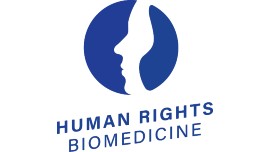Biomedical Research

The Protocol is to cover the full range of biomedical research activities involving interventions on human beings. It is important to note that pharmaceutical research is not the only field of biomedical research to be addressed by the Protocol. New methods of treatment, diagnosis, and prevention may also require research on human beings. Research on embryos and foetuses in vivo, and pregnant women is to be covered by the Protocol.
The fundamental principle for research involving human beings, as in the Convention itself, is the free, informed, express, specific, and documented consent of the person(s) participating. It is foreseen that the Protocol will address issues such as risks and benefits of research, consent, protection of persons not able to consent to research, scientific quality, independent examination of research by an ethics committee, information to be submitted to the ethics committee, information for research participants, confidentiality and the right to information, dependent persons, undue influence, safety, duty of care, and research in states not Party to the Protocol.
Read more
Particular attention is being paid at the Council of Europe to the fulfilment of the requirement of independent and multidisciplinary review of the ethical acceptability of biomedical research. First of all, this is being done through a more detailed examination of the subject of ethical review and ethics committees in the Additional Protocol. This will serve to harmonise the principles of ethical review of research involving human beings in Europe. Additionally, the Council of Europe has undertaken a programme of cooperation between 1997-2004 with its Member States in central and eastern Europe and elsewhere called the Ethical review of Biomedical Research Activity (DEBRA). DEBRA consists of multilateral and bilateral meetings, study visits and informative materials on best practice in Europe.
An International Conference on "Ethics Review of Clinical Research in Pharmaceuticals" organised by the Council of Europe and the Ministry of Health and Social Development of the Russian Federation took place in Moscow on 28-29 November 2011. The Guide for Research Ethics Committee members was presented on this occasion.










